Five things to do on arrival…
You’ve been planning this part of your life for years and the time has finally arrived. You’re heading off on an adventure, ‘uncharted waters’, teaching English in Hanoi, Vietnam. Your first stop in Hanoi will be the Australian Government accredited TESOL course at AVSE-TESOL. You’ve read more than 200 online reviews about AVSE-TESOL, with the vast majority being top notch. Given your background, as solid as it is, bears no resemblance to teaching English in Hanoi, you figure that investing in quality vocational training – teacher training – is a wise move. I think you’re right. Not only will the TESOL training at AVSE-TESOL provide you with the knowledge, skills and quality certification you need to land that all-important first teaching job, it gives you four weeks to find your feet in a new country, surrounded by like-minded people who ooze ‘positive vibes’..
Here’s the last bit of perspective. This blog post is focused on what to do immediately after you’ve arrived in Hanoi, taken a taxi to your accommodation, had a shower and a snooze. The tips that are provided are equally relevant if you’ve chosen to do a TESOL course with a provider other than AVSE-TESOL, probably more so given AVSE’s supportive arrival process. Applying these tips should make your transition to a new lifestyle, initially as a TESOL student followed by teaching English in Hanoi, more straight-forward than it might otherwise be.
Tip 1: Fix your phone
Walking around outside without a cell-phone that’s immediately accessible and useable, for many people, is akin to being ‘butt naked’ in the street. Rightly or wrongly, these days, cell-phones are an integral part of everyday life, especially when you’re located in unfamiliar surroundings. Google maps (via your cell-phone), may well end up being your best friend, at least for a few days until you know the backstreets and alleys that characterise Hanoi. Moreover, once you’ve fixed your phone, you’ll be able to reach out to family, friends and your TESOL provider. They’ll all be eager to hear that you arrived safely. Here’s a word of warning, however, when you need to use your cell-phone in the street in Hanoi, it’s best to take some cover in a doorway or similar. Why? You’ll reduce the chance of being subjected to a ‘ride-by’ snatch – a crook on a motorbike.
Getting your phone up and running might be a simple case of inserting a new (local) SIM card. Conversely, it might be a nightmare. If you’re a cell-phone guru, you’ll be fine. If this doesn’t sound like you, visiting a cell-phone shop close to your accommodation should be a priority. The good news is, cell-phone shops in Hanoi are seemingly on every street corner. The receptionist in your hotel or guest house will surely point you in the right direction.
In the unlikely event that you’ve travelled abroad without a cell-phone, you will need to get one. Jobs offers for teaching English in Hanoi are typically made by phone. If the employer can’t reach you by cell-phone, he (or she) will simply move onto the next candidate.
Note, fixing your cell-phone at the airport – a common ‘rookie’ error – will cost you substantially more than visiting a ‘mum and dad’ phone shop downtown.
Tip 2: Know the local neighbourhood
Now that your cell-phone is in working condition and you can tap your best mate ‘Google Maps’ on the shoulder, there is less chance that you’ll get lost in Hanoi when you venture out. So, venture out. It’s time to get to know the neighbourhood where you’re staying, even if your current accommodation is only a short-term thing. Before venturing into the unknown, even though you have ‘Mr Google Maps’ in your pocket, take a business card from the place where you’re staying or write the address on a bit of paper and put it in your wallet as a back-up strategy to avoid getting lost. Worst case scenario, let’s assume you do get lost. For sure, you will find the way back to your accommodation sooner or later, if only because downtown Hanoi isn’t that big. Anyway, it could be argued that getting lost in Hanoi is all part of the adventure.

Where is the grocery store, the pharmacy, the bus station, a great coffee shop, an area for passive recreation and most importantly for visitors to Hanoi who have done their research, the local ‘Bia Hoi’? What’s a Bia Hoi? Do a quick Google search and then make a point of visiting one when you’re in Hanoi.
Familiarising yourself with the neighbourhood extends to working out how to get to the address where your TESOL course will take place. Again, Google Maps will come in handy, but something as simple as a ‘Mud Map’ with landmarks might be enough. Doing a ‘dry run’ from your accommodation to the training venue would be time well-spent.
Tip 3: Bond with those around you
Assuming your TESOL course in Hanoi comes with high quality accreditation, like the Australian Government accredited programme at AVSE-TESOL, you’ll be mixing with people – classmates, professional Vocational Trainers and TESOL support staff – who are on the very same journey as you, or are leading the way. You’ll be with like-minded souls. It’s within this kind of environment where life-long personal and professional relationships are formed.
When you’re in a foreign country, friends are more important than ever. Almost certainly you’ll need to reach out at some stage for guidance on visa matters, travelling around Vietnam, where to get a job teaching English in Hanoi, where not to work, employment or lease contracts and the list goes on. It makes sense to have a pool of decent people you can call on when they’re needed. Human nature dictates that people are usually happy to give a helping hand to someone they consider to be a friend. As always, people will be more likely to consider you as a friend, if you’re respectful and nice to them.
Tip 4: Take safety precautions
Statistics show that Hanoi is markedly safer than the capital cities of most developed countries, but crime, especially petty crime, does occur. Foreign ‘tourists’ are ‘standout’ targets when they ‘flash their cash’ or get around town with their valuables on display – cameras, jewelry and suchlike. You will see this kind of behaviour pretty much on a daily basis in main tourist areas in Hanoi. I suspect it has more to do with ignorance than anything else.

When a villain is apprehended by the police – or a member of the community – there are no ‘ifs and buts’. Justice Vietnamese-style is swift and often brutal. Vietnam is one of those countries in the world where it’s not a good idea to transgress the law, regardless of whether you’re a local person or a visitor.
While Hanoi (and elsewhere in Vietnam) has a well-deserved reputation for being safe, it’s always smart to take precautions including, but not limited to: store your money, passport and other valuables in a place that’s secure; know how to get into your accommodation after hours; be accompanied by friends when walking in the street at night; don’t use your cell-phone when standing or walking in the street; if you have to carry a bag in the street, make sure it has a long strap so you can place it across your body; if you hire or buy a bicycle (or motorbike) to get around Hanoi, make sure it’s locked when left unattended; and know who to call in case of an emergency. It’s common for folks who are teaching English in Hanoi to have evening classes that go to 8.30pm and even later. Travelling home (alone) after a late class requires extra vigilance. All of these precautions equally apply to any other city in the world.
Tip 5: Always remember that you’re a visitor
I have been living and working in Vietnam for more than 15 years. Back in 2007, my old dad visited me in Vietnam. During this trip, he mentioned in passing ‘always remember you’re a visitor’ – and to this day, I’d like to think that I’ve heeded his astute advice.
Vietnamese people have every reason to be peeved with foreigners. For 3,000+ years, foreigners have felt the need to turn up without an invitation and tell local people how to run their life. Despite what’s happened throughout history, almost certainly you will form a view that Hanoians and other Vietnamese folks are up with the loveliest the world has to offer. Those who felt the need to trespass have long since been forgiven. These days, foreigners who are teaching English in Hanoi, are revered. Personally, I’d like to keep it that way.
You and I – and hundreds of thousands like us – are now welcome in Vietnam, but as my old dad said ‘always remember you’re a visitor’. Be polite. Go about your work teaching English in Hanoi in a professional manner. Respect local customs and traditions. Don’t get involved in discussions about politics and religion. If there are language problems, be mindful that in Vietnam people speak Vietnamese and if you’re having issues with understanding something or getting your point across – they’re your issues. To drive home the importance of ‘always remembering you’re a visitor’, here’s a succinct analogy: when visiting a friend or neighbour’s house, would you take it upon yourself to rearrange their furniture? I don’t think so.
Summary
In summary, I’ve provided 5 tips that should make it easier for you to your new life as a TESOL student in the short-term and then teaching English in Hanoi. Fix your phone, know what’s available, make an effort to network, take sensible steps to enhance your safety and be respectful towards locals. You’ve been brave enough to embark on this ‘once in a lifetime’ adventure, so it makes sense to grab the opportunity with both hands.
About the writer: Peter Goudge is the Managing Director (and owner) of AVSE-TESOL in Hanoi, Ho Chi Minh City, Phnom Penh and Online. AVSE-TESOL has been training aspiring educators for jobs teaching English in Hanoi, Ho Chi Minh City, Phnom Penh and other parts of Southeast Asia for more than a decade. Check out the AVSE website: www.avse.edu.vn
Teaching English in Hanoi versus teaching English in Ho Chi Minh City
I am often asked if teaching English in Hanoi is better than teaching English in Ho Chi Minh City or vice versa. How do you answer that kind of question with so many variables, including personal preference? Typically, I’ll offer comparisons between the two destinations and remind the person who asked the question that neither place has to be their forever teaching location. If you’ve had enough of a particular teaching destination, move to a new one. Teaching English in Vietnam and elsewhere abroad is one of only a few professions that allow moving from location A to B to C with minimal fuss. Why? There are many more ESL teaching jobs available in Vietnam than there are suitably qualified people to fill them. This is one time in your life when ‘market forces’ will well and truly work in your favour.

Five comparisons
Immediately below, you’ll find five comparisons between teaching English in Hanoi and teaching English in Ho Chi Minh City. I trust you’ll find the comparisons helpful if you’re one of those people who’s not sure whether north (Hanoi) or south (Ho Chi Minh City) should be your teaching English abroad start point.
One – Pace of life:
Teaching English in Hanoi offers a much slower pace of life compared to teaching English in Ho Chi Minh City. With a bohemian feel, you’ll find an aspect of art, culture, or history in every street in Hanoi – in some streets, you’ll find all three. In contrast, Ho Chi Minh City is a modern metropolis and international hub. There are places in Ho Chi Minh City that provide an insight to the ‘old Vietnam’; Ben Thanh Market, and the Quan Am Pagoda are two examples, but increasingly the landscape is being consumed by high-rise apartments and offices.
Two – Weather:
Teaching English in Hanoi comes with the classic four seasons – with a Southeast Asian variation – hot and wet in the summer months and cold and dry in winter. Ho Chi Minh City has only two seasons, wet and dry. The wet season is characterised by high humidity and a daily downpour, the like of which most folks have never witnessed before travelling to Ho Chi Minh City. As the name suggests, there’s zero rain during the 6-month dry season. Regardless of the season, Ho Chi Minh City is oppressively hot 24/7.

Three – Teaching jobs:
The availability of English as a Second Language (ESL) teaching jobs is one area where Hanoi and Ho Chi Minh City are hard to separate. There is an abundance of ESL teaching jobs available in both locations. Moreover, the type of ESL teaching work on offer is similar. In both Hanoi and Ho Chi Minh City, teaching jobs are available in privately owned English Language Centres, government schools and tertiary institutions. Private tutoring and onsite ESL classes for business people are also common in both cities.
Four – Cost of living:
There are some cost-of-living factors, accommodation, for example, that are seemingly more expensive in Hanoi compared to Ho Chi Minh City. Equally, there are other cost of living factors; food is one example that comes to mind, that are more expensive in Ho Chi Minh City compared to Hanoi. Overall, the cost-of-living difference between Hanoi and Ho Chi Minh City is negligible, if it exists at all. By any measure, Vietnam is a cheap place to live. The wages and employment conditions afforded to foreigners who are teaching English in Hanoi – and Ho Chi Minh City provide for a savings capacity and lifestyle that most people can only dream about.
Five – Crime:
Personally, I have always felt safer in Hanoi, Ho Chi Minh City and elsewhere in Vietnam than I did when I was living in Melbourne, Australia – my hometown. Of course, scams and petty crime are not uncommon in both Hanoi and Ho Chi Minh City, but the prevalence is not a distinguishing factor between the two cities, in my opinion. Sure, there are places where it would be unwise to walk alone at night in both Hanoi and Ho Chi Minh City, and you do need to avoid rookie errors like using your cell phone in the street and carrying your wallet in your back pocket, but the same applies to pretty much every city in the world.
Summary
In this blog post, I have touched on five factors that people commonly weigh up when deciding whether to start their teaching abroad journey in Hanoi or Ho Chi Minh City. The pace of life and the weather are obvious differences between the two cities. However, if there is a difference between Hanoi and Ho Chi Minh City with the availability of teaching jobs, the cost of living and crime, it wouldn’t be enough to say that one of the two locations is a better place to work as an ESL teacher over the other. Overall, that old expression, ‘same, same, but different’, certainly applies when drawing comparisons between teaching English in Hanoi and teaching English in Ho Chi Minh City.
About the writer: Peter Goudge is the Managing Director and owner of AVSE-TESOL in Australia, Vietnam and Cambodia. With TESOL training schools in Hanoi, Ho Chi Minh City and Phnom Penh, Peter has spent the past two decades working in the ESL sector in Southeast Asia. Check out the AVSE-TESOL website: www.avse.edu.vn
‘Me Time’ While Teaching English in Hanoi
I’ve got it pegged that you’re here because teaching English in Hanoi is on your radar. Of course, it might be a far-off ‘blimp’, a flashing red light with a deafening siren, or somewhere in between. Regardless, it’s terrific that Hanoi is on your mind. You’re in for a treat. It’s a fascinating city. I can’t think of anywhere else in the world where you’ll find so much history, art and culture in one place. Yes, it’s chaotic, densely populated, and the quirky weather – hot, humid, and wet for half of the year and dry and cool for the other half – takes time to get used to, but you’re in the market for change. Correct?
Teaching English in Hanoi comes with a range of benefits, including: a decent salary, the opportunity to make a real difference in the lives of local people, a much lower cost of living compared to western countries, and the chance for plenty of ‘me time’. Personally, I’m a big fan of ‘me time’. It’s good for the heart and soul. My version of quality ‘me time’ involves being out and about rather than sitting in front of the ‘telly’. If your version of the best ‘me time’ is like mine, being out and about, here’s a list of five places in Hanoi you’ll absolutely love.
Train Street
Train Street in Hanoi is a popular destination for local people and visitors because it’s so unusual, and there are always plenty of people ‘hanging out’. Most railway lines in developed countries come with an easement of ten to fifteen metres on both sides of the track to protect people and property. The easement in Train Street on the left and right-hand side of the track is twenty centimetres (+/-). There are rows of old houses on both sides of the track on Train Street. Many have been converted into restaurants, cafes and bars. Somehow, trains squeeze between the dwellings day in and day out with zero ‘wriggle room’. Pull up a chair, order a cold beer and wait for a train to go by. It’s a sight to behold.

Underground shopping mall
People go to shopping malls for all kinds of reasons – to buy things, see a movie, catch up with friends and the like. However, Hanoi is one of the few places where people visit a shopping mall to experience subterranean life. The Vincom Mega Mall in Hanoi’s Thanh Xuan District is entirely underground. The outside roof of the mall is a park, similar to a park you find in any other major city. While the 800+ retail shops at Mega Mall are the key drawcard for most visitors, the quirky design of the building is enough reason to pop down there when you have a chance.
Hoan Kiem Lake
As much as you’ll love teaching English in Hanoi, finding the right balance between work and ‘me time’ is imperative. The Hoan Kiem Lake precinct in Hanoi is ‘me time’ central. There is always something happening at Hoan Kiem Lake and the surrounding area that will capture your interest. You’ll see people of all ages and backgrounds jogging, taking a stroll, walking their dog, ‘people watching’, playing board games and sharing quiet time with a friend. Informal, dance and exercise classes take place every evening at Hoan Kiem Lake. Step outside your comfort zone and join in. You won’t be imposing. You’ll be welcomed with open arms.

Cafe Dinh
If the walls in ‘Cafe Dinh’ could talk, there’d be enough material for a bestseller. The coffee and ambience at this place are superb. It’s like being in a time warp. Located on the second floor of an old, decaying building overlooking Hoan Kiem Lake, it’s easy to miss Café Dinh. But once you find it, I’m confident it will make it to your list of ‘me time’ destinations while you’re teaching English in Hanoi. Interestingly, a family member of the current owners created the original ‘coffee with egg’ recipe in the 1940s, that’s a favourite of pretty much every Hanoian I’ve met. Unfortunately, the ‘coffee with egg’ concoction and my taste buds don’t get on very well, but you should try it at least once.
Bach Thao Park
London has Hyde Park, New York has Central Park, Melbourne has Treasury Gardens – and Hanoi has Bach Thao Park, also known as the Hanoi Botanical Gardens. With mature trees, lakes and open space – yes, there’s grass – Bach Thao Park is like an oasis in the middle of an urban jungle. The park is very popular with Hanoians and foreigners seeking to escape city life’s hustle and bustle. I read somewhere that Bach Thao Park is the ‘lung’ (singular) of Hanoi. While I think that’s an exaggeration, you’ll undoubtedly appreciate the greenery. Lay out a blanket under one of the beautiful, old trees at Bach Thao Park, open a book, and you’ve got half a day of ‘me time’ at zero cost.
Conclusion
In this short article, I have identified five places that are well worth considering when you’ve got time away from your job teaching English in Hanoi. Train Street and Mega Mall rated a mention because they’re so unusual. Next, Hoan Kiem Lake and Bach Thao Park are brilliant locations for ‘me time’, offering serenity that can be hard to find in a big city. Finally, the ambience and history of Cafe Dinh make this place my personal ‘me time’ favourite location. Visit Cafe Dinh once, and it will almost certainly be your ‘me time’ favourite.
Have you already visited one or more of the five locations on my ‘me time’ list? If so, share your opinion in the comments section below.
About the author: Peter Goudge is the Managing Director (and founder) of AVSE-TESOL in Hanoi, Ho Chi Minh City and Phnom Penh. AVSE-TESOL delivers an Australian Government accredited TESOL programme in Hanoi, Ho Chi Minh City and Phnom Penh. Check out the AVSE-TESOL website: www.avse.edu.vn
Don’t forget insurance
The key indicators – job advertisements, pay rates, ‘me time’, cost of living – suggest that Hanoi, Vietnam, is one of the hottest destinations worldwide for adventurous people who are keen on teaching English abroad. If you’re somebody who is thinking about teaching English in Hanoi, here’s some advice. Do it. Assuming your credentials are in order, you’ll find a job with relative ease, earn a decent wage and only work 100 hours (+/-) a month. When the low cost of living is added to the mix, there’s a quintessential expat lifestyle on offer.
Perspective
While there is every reason to believe that your experience teaching English in Hanoi will be rosy like my own over the past 15 years, and tens of thousands of others over the past three decades, travelling anywhere abroad comes with risks. Heaven forbid you have a motorbike accident, pick up a horrible bug of some kind, be attacked by a rabid dog or meet some other misfortune. We might think that we’re indestructible, but the reality is, we’re not.
The consequences of meeting misfortune while abroad, as distinct from home turf, is where problems arise. Days, weeks or perhaps even months recuperating in a Vietnamese Public Hospital do not come cheap for foreigners. There are sad stories all over the internet of mums and dads in England, the US, Australia and elsewhere being lumbered with substantial medical bills because their son or daughter had an accident, got sick or suffered an injury while teaching English in Hanoi – and they didn’t have insurance. Travelling abroad without insurance is irresponsible! If you’re unable to meet the cost of basic insurance for the time you plan to spend in Vietnam, then it’s best to put your plans on hold. It’s that important.
Like you, I’m not happy about paying insurance premiums of any kind, but the idea that my old mum and dad (both in their 80s) would be forced to mortgage or sell their house to cover my medical bills or to ship my mortal remains back to Australia, fills me with horror. Without wishing to alarm you, I know six expats who have been shipped home in a box and two in a vase, during my time in Vietnam. In each case, the costs were passed onto the next of kin. You cannot assume that your job teaching English in Hanoi will come with insurance coverage. Some do, but 90%+ don’t.
Key features
Decent travel insurance with medical coverage is relatively easy to find with a simple Google search. ‘Compare, compare, compare’ is the key to getting a good deal. Once you think you’ve found a good deal, then it’s time to use your bargaining skills to get an even better deal. You may be surprised to learn that insurance costs are less than you expected and the inclusions are more than you expected. Personally, I’m covered by World Nomads, and I have been for all but one year of my teaching abroad journey. Here are some of the key items that a decent insurance policy will cover:
Medical: This is not an area where you can scrimp. Your insurance policy needs to cover all medical expenses – inpatient and outpatient – in the event of an accident, sickness or injury while you’re teaching English in Hanoi. The language typically used in a travel insurance policy is ‘Unlimited’, or words to that effect. You need ‘Unlimited’ medical coverage.
Baggage: It’s about the replacement cost of items that are lost, stolen or damaged while you’re abroad. Depending on the value of your possessions, this might be an area where you can reduce your insurance premium. If your possessions aren’t worth much, you should ask the insurance provider if you can obtain a cheaper fee by: 1. excluding ‘Baggage’ from the policy; or 2. only covering items that will be costly to replace.

Trip cancellation: If you need to cancel your travel plans for whatever reason, you’ll be able to claim non-refundable payments. For example, you may have paid US $800.00 for airfare from Rome to Hanoi. You need to cancel your ticket. The airline charges you a cancellation fee of US $250.00. It’s possible (depending on ‘Deductibles’) that your insurance will cover the US $250 fee. Trip cancellation is an area where you can be thrifty following a simple risk versus benefit analysis. It’s worth considering.
Death or disability: The cost of having mortal remains shipped from Vietnam to another country is astronomical, in the realm of someone having to mortgage their house. Without insurance, either a family member or friend will have to meet all expenses to get you home for burial. The alternatives are to be ‘shelved’ in a Vietnamese mortuary as an unclaimed body or to be ‘unceremoniously’ cremated and posted home. Both options are frightful. The consequences of suffering some kind of permanent disability while you’re in Vietnam are equally dire without insurance. Scrimping with death or disability cover is unwise.
Deductibles
Pretty much every travel insurance policy that I have seen references ‘Deductibles’ by way of a monetary sum. The term ‘Deductibles’ is insurance jargon for what you must contribute in the event of a claim before your insurance policy kicks in. For example, let’s say you’re out with your mates on a Friday night, you walk into a wall and break your nose. The total cost of getting your nose fixed in Hanoi is US $1,000.00. Your ‘Deductibles’ are US $650.00. At best, your insurance provider will reimburse you US $350.00 (US $1,000.00 – US $650.00 = US $350.00). Why have I raised ‘Deductibles’ in this post? Firstly, most people don’t know they exist until they make a claim – and receive a lower payment than they expected. Secondly, you might be able to use the ‘Deductibles’ number to achieve a lower premium for your insurance policy. The higher the ‘Deductibles’, the lower the premium. Suppose your goal is to be covered for high-cost, ‘worst-case scenario’ type situations during your time teaching English in Hanoi. In that case, you might choose to increase the ‘Deductibles’ to a sum that’s terrible to contemplate, but is manageable, in exchange for a cheaper insurance policy.
Summary
The message in this short article is straightforward. Teaching English in Hanoi is an ‘adventure of a lifetime’, but make sure you’re covered by medical, death and disability insurance (as a minimum). If you have an accident, get sick, suffer an injury or worse – and you’re not covered by insurance – your ‘adventure of a lifetime’ may well end up being a nightmare. If you’re unable to pay for insurance before departing from your home country, put your plans on hold until you can. Shop around until you find an affordable insurance policy, that comes with the coverage you need – and ‘Deductibles’ that are manageable.
Enjoy your time teaching English in Hanoi. Most importantly, stay safe.
About the writer: Peter Goudge is the Managing Director (and owner) of AVSE-TESOL in Vietnam and Cambodia. AVSE-TESOL offers an Australian Government accredited TESOL programme in Hanoi, Ho Chi Minh City, Phnom Penh and online – a brilliant pathway for people looking to teach English in Southeast Asia and beyond. Visit the AVSE-TESOL website: www.avse.edu.vn
Teaching English in Hanoi to clear student debt
My name is Monica Willow. I’m from Denver, Colorado. AVSE-TESOL asked me to write a Guest Post for their Vietnam Blog, and I’m delighted to help out. I’ll take this opportunity to share my personal experience with teaching English in Hanoi as a way to clear student loan debt.
Circumstances
Attending university or college in the United States is expensive. Every year, students take out loans to further their education. I’m no different to millions of students in America and around the world doing the same thing. Accumulating student debt is the ‘norm’ for people who want a tertiary education. Literally, millions of Americans living in the world’s most prosperous country are left debt-ridden because they pursued a university or college degree. There are reported cases of people carrying student debt from their early twenties through to retirement age.

I completed a Social Work Degree at the University of Southern Mississippi in 2014. By the time I graduated, my student debt was just shy of US $50,000. You might be surprised to learn that the debt I had accumulated was only a fraction of what some university friends and acquaintances had amassed. Within a month of finishing my degree, I moved back to Denver to live with my mum and dad. My thinking at the time was that I’d be able to: 1. find a well-paid job in Denver because of my degree, and 2. chip away at my student debt because I’ll be living rent-free at my parent’s place.
Within a week of moving back to Denver, I found the job of my dreams. Good news! Well, not exactly. It took less than two months to realize that the ‘job of my dreams’ doesn’t pay enough to cover everyday expenses, let alone to reduce my student debt. I was working long hours as a professional Social Worker and getting nowhere fast. My social life was non-existent because I was ‘penny-pinching’ and if it weren’t for the free accommodation at my parent’s place, my student debt repayments wouldn’t have even covered the interest. Was I naive? I think so. My life at the time was soul-destroying. I needed a new approach that would allow me to meet my financial commitments while enjoying a ‘normal’ life – spending time with friends, going to movies, dancing, eating out, pursuing a hobby, and doing other things that I enjoy.
Vietnam, here I come
In April 2015, a friend of mine from university, Tory, sent me a Facebook message about her life teaching English in Hanoi, Vietnam. Tory’s message piqued my interest. I’d especially noted that I could earn more working as an English language teacher in Hanoi than working as a Social Worker in Denver. Moreover, everyday expenses in Hanoi are markedly less than in Denver. Putting the financial aspect to one side, I’d always wanted to travel outside of the United States and experience other cultures. Tory had traveled to Hanoi within days of completing her degree. The ability to make a snap decision (and live with the consequences) is one of Tory’s many positive attributes. I tend to procrastinate, but not on this occasion. Fast forward six weeks, I arrived in Hanoi on 27 May 2015.
Ask me about Social Work (or movies), and I’ll ‘gasbag’ forever because it’s what I know. Teaching English abroad requires a new skill set, knowledge, and internationally recognized certification. It’s not enough to hold an American Passport or be a native English speaker to take on a job as a professional English teacher. With this in mind, I chose to follow in my friend’s footsteps and enroll in the Australian Government accredited TESOL program (teacher training) at AVSE-TESOL in Ba Dinh District in Hanoi. I loved the people at AVSE-TESOL. I also loved the intensive 4-week TESOL course. The certification that comes with the TESOL course at AVSE-TESOL is highly regarded by Vietnamese schools. With TESOL certification from AVSE, I started teaching English in Hanoi on 29 June 2015.
Bottom line
It’s now summer in 2019. I’m sitting in Noi Bai International Airport in Hanoi, writing this blog post while waiting for a flight back to the US. I’ve spent the past four years teaching English in Hanoi. Where has the time gone? It has been a privilege. How lucky was I to learn about this opportunity? Very lucky! On top of making many wonderful friends, Vietnamese, and other expats, I’ve seen tangible results flow from my teaching work. I’ve traveled extensively in Asia – and I’ve managed to clear US $45,000+ of student debt. Yes, I still have another US $5,000 to go, but it’s manageable. Vietnam has been good to me. I’m grateful.
Here’s a crude outline of my financial arrangements during the almost four years that I taught English in Hanoi.
- Average month salary (Language Center + Online): US $2,300.00
- Number of months worked (including paid leave, excluding vacations & unpaid training): 42
- Average hours worked per month: 108
- Average monthly rent + utilities: US $350.00 (predominately single room in a shared house)
- Average monthly expenses (food, personal items, socializing, motorbike…): US $600.00
Calculation: US $2,300.00 x 42 = US $96,600.00 – US $39,900.00 (US $350.00 + US $600.00 x 42) = US $56,700.00 (in the black). Of the US $56,700.00 that I cleared (after all expenses) from teaching English in Hanoi, US $45,280.00 was used to reduce my student debt and the balance was spent on airfares, my TESOL training, traveling and other sizable, one-off expenses. I should reiterate, this is a crude estimate.
Summary
Being saddled with student debt is the reality for many Americans of my generation. People work long hours for an eternity and lead unfulfilling lives because it’s the only way they know to clear their debt. If you’re anything like I was, up to my eyeballs in student debt, consider teaching English in Hanoi or elsewhere in Asia to turn your life around. This simple debt-clearing strategy worked for me. There’s every reason to believe that it will also work for you.
About the writer: Monica Willow arrived in Vietnam in May 2015 with some firm goals in mind. Working as an English teacher in Hanoi to clear accumulated student debt was one of those goals. An Alumni of AVSE-TESOL in Hanoi, Monica’s ‘good news’ story can also be yours. Check out the AVSE website: https://avse.edu.vn/



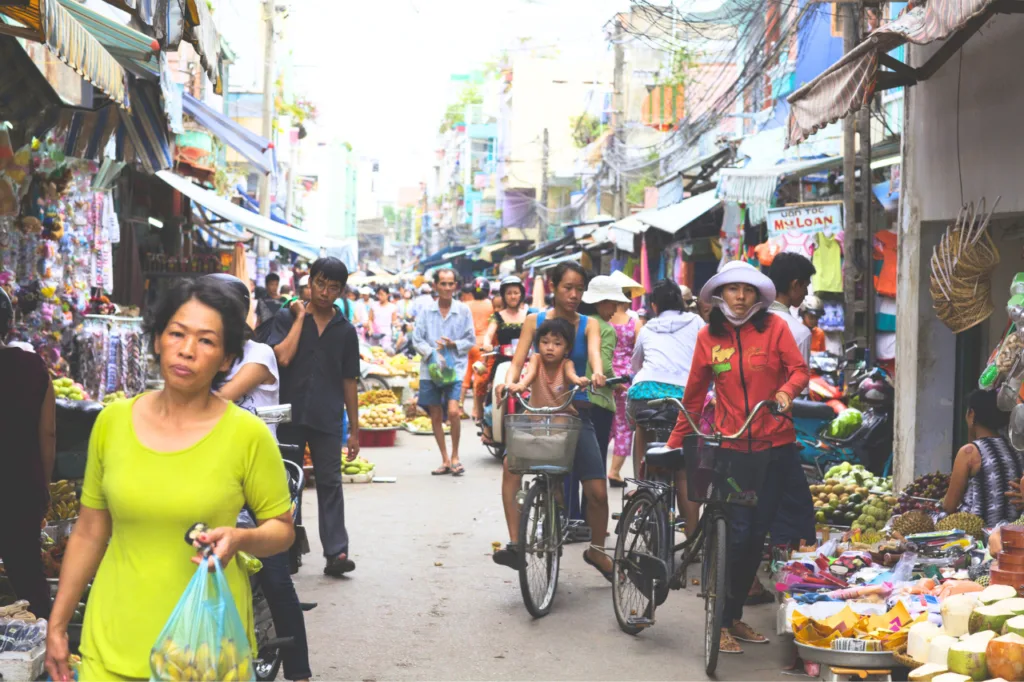


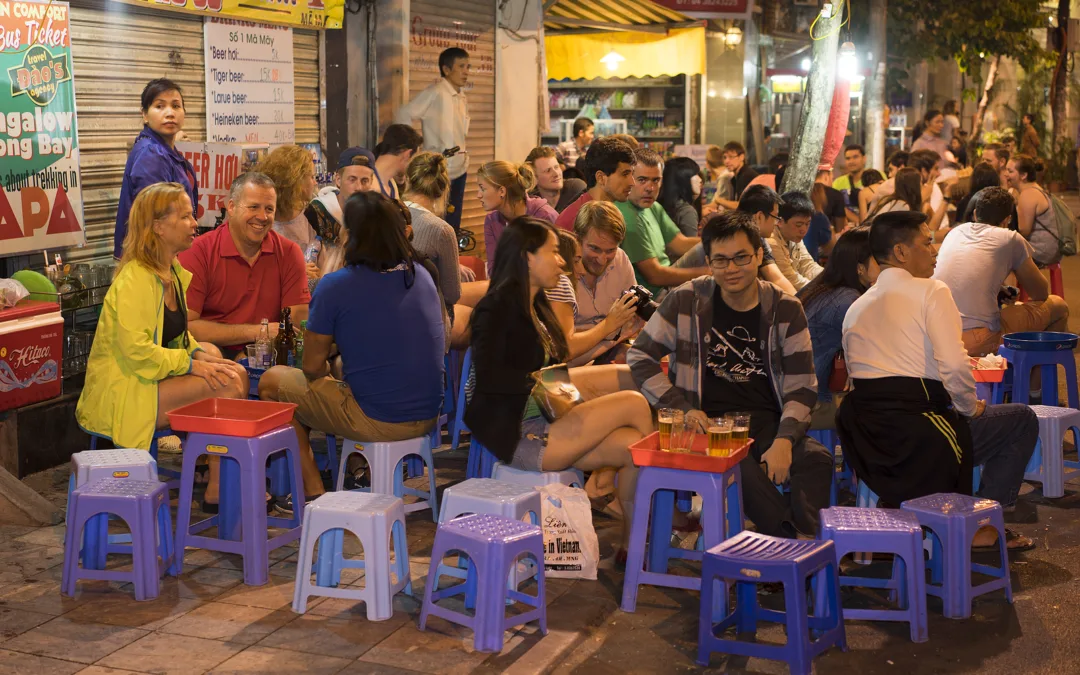
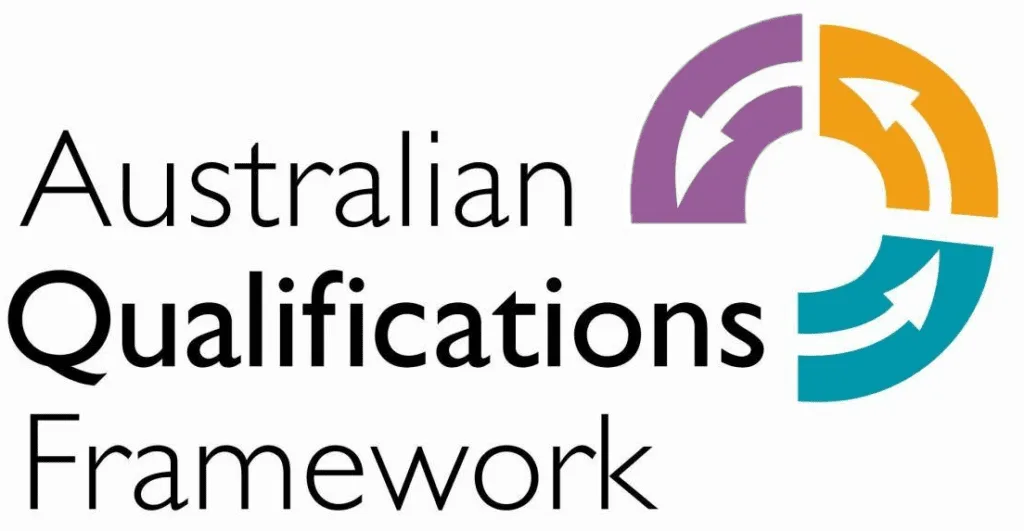
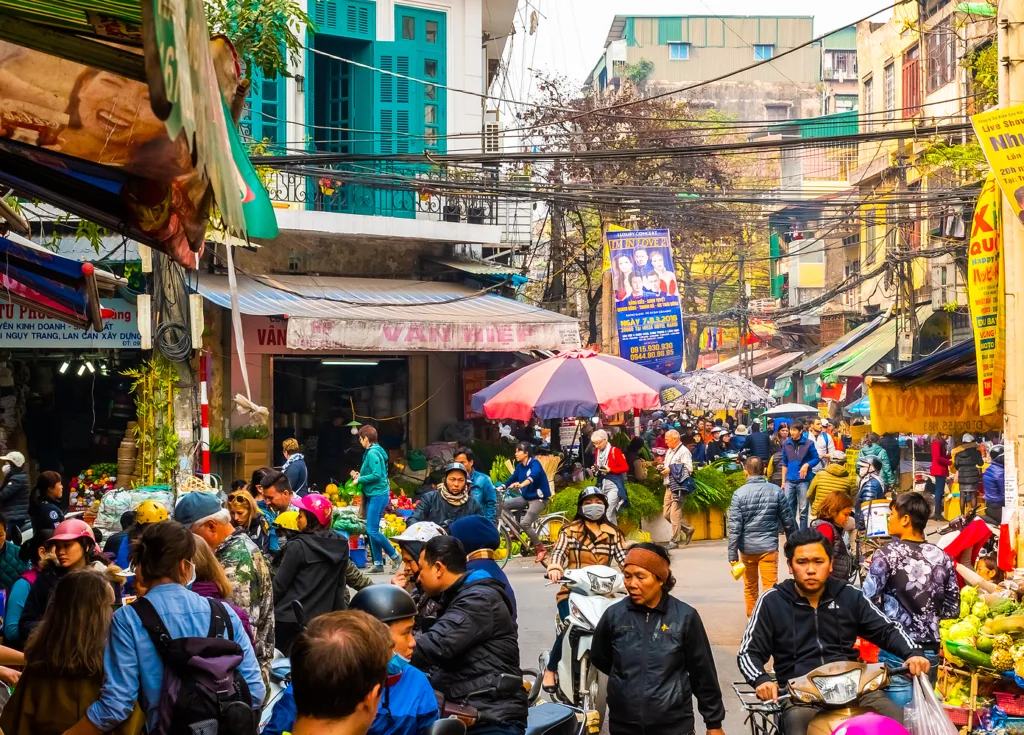



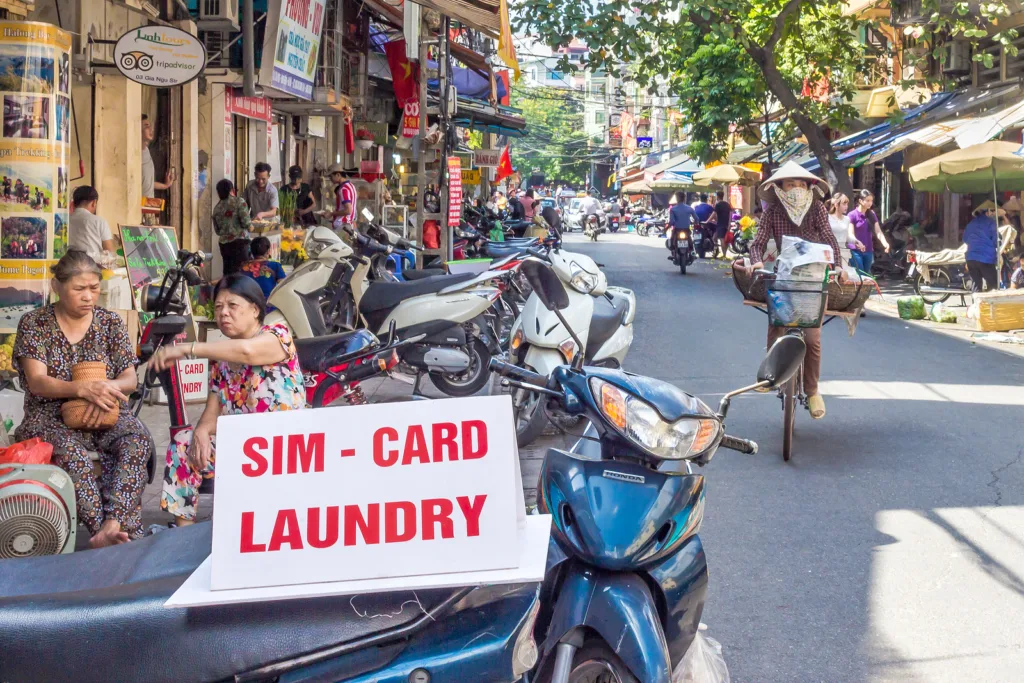










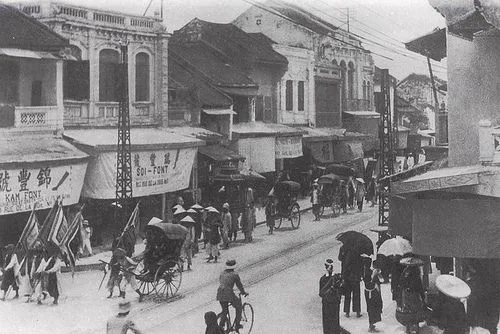

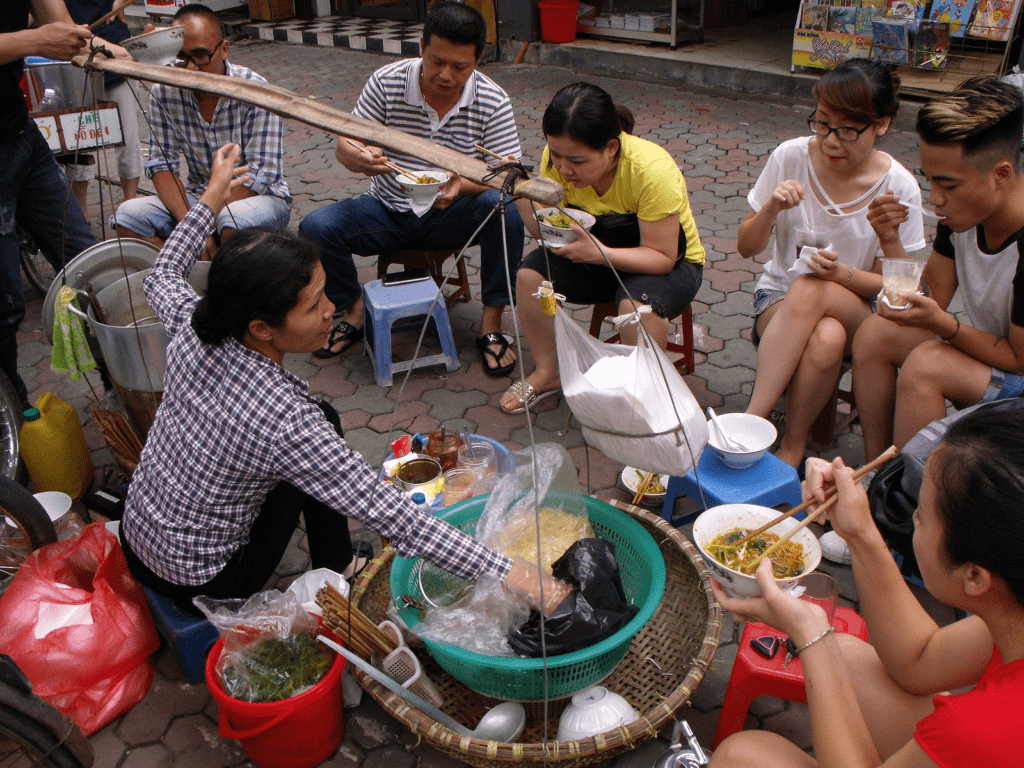




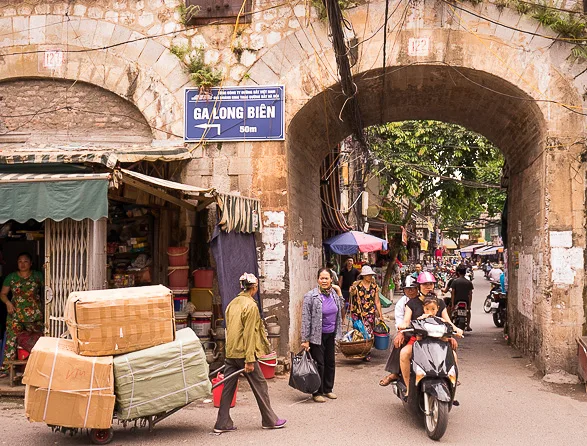

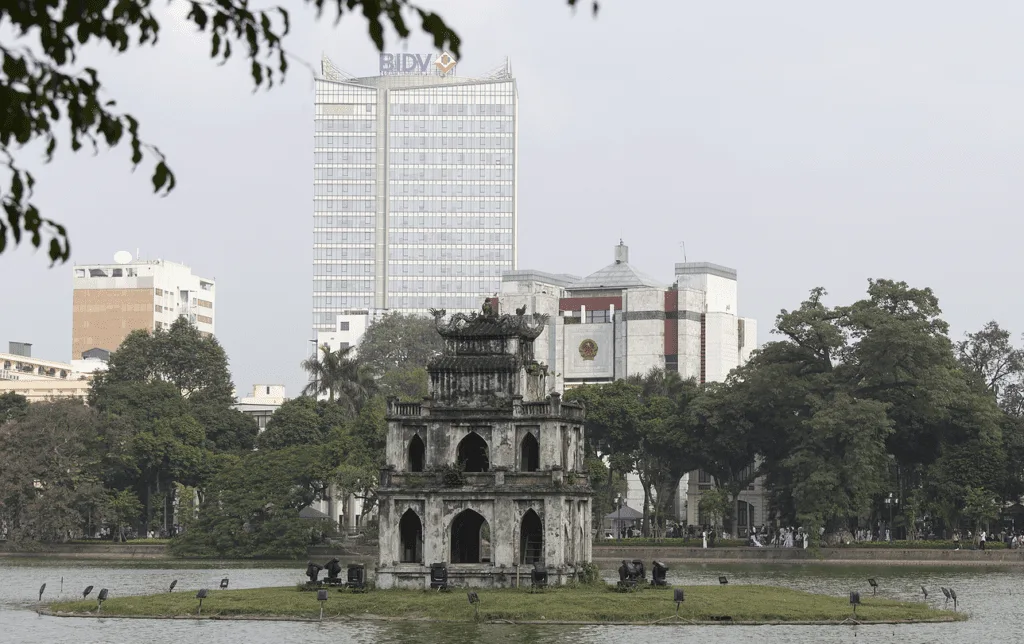
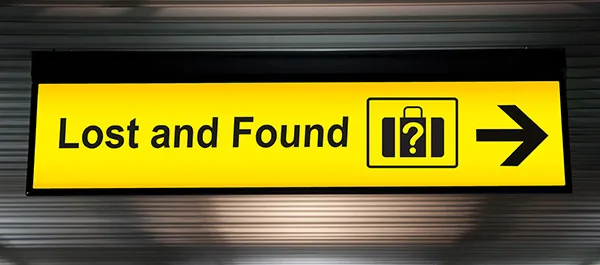

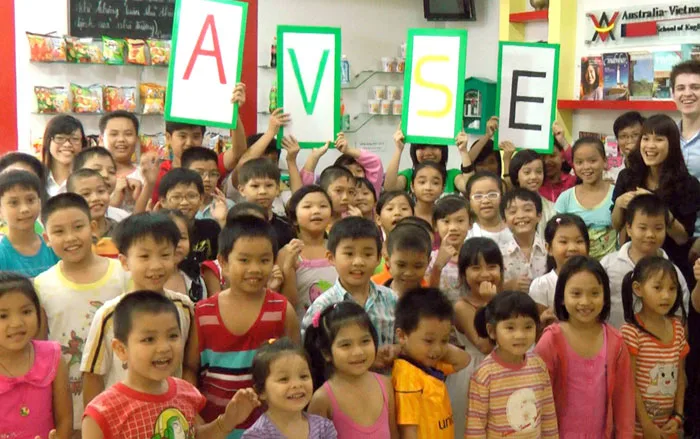






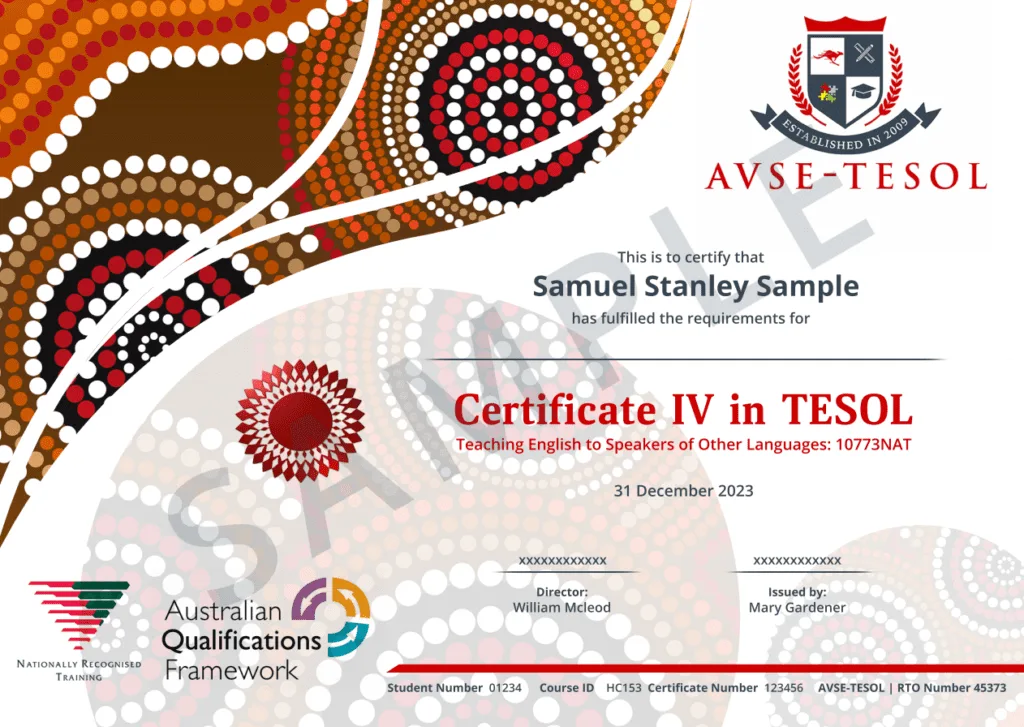



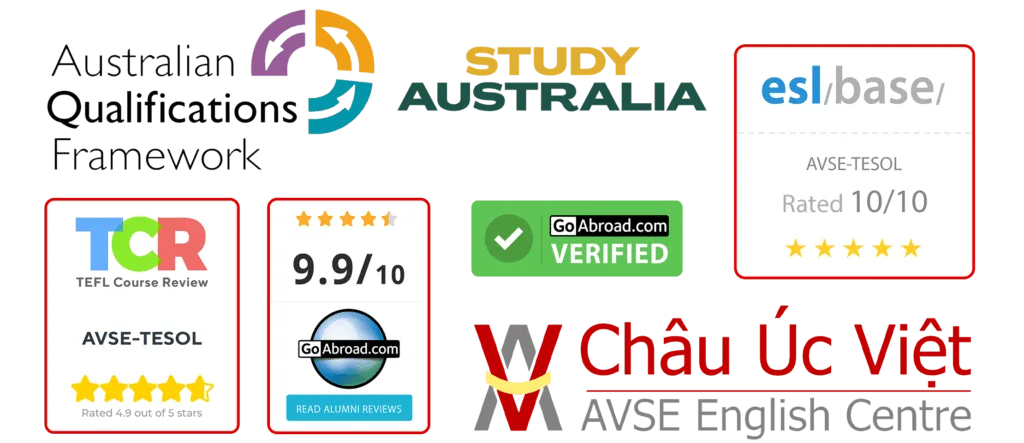
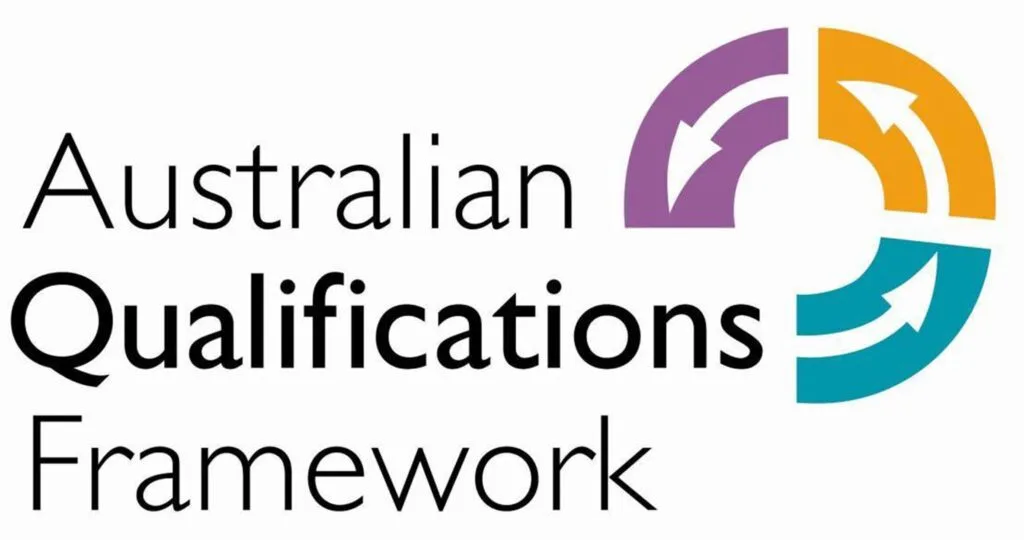

Recent Comments